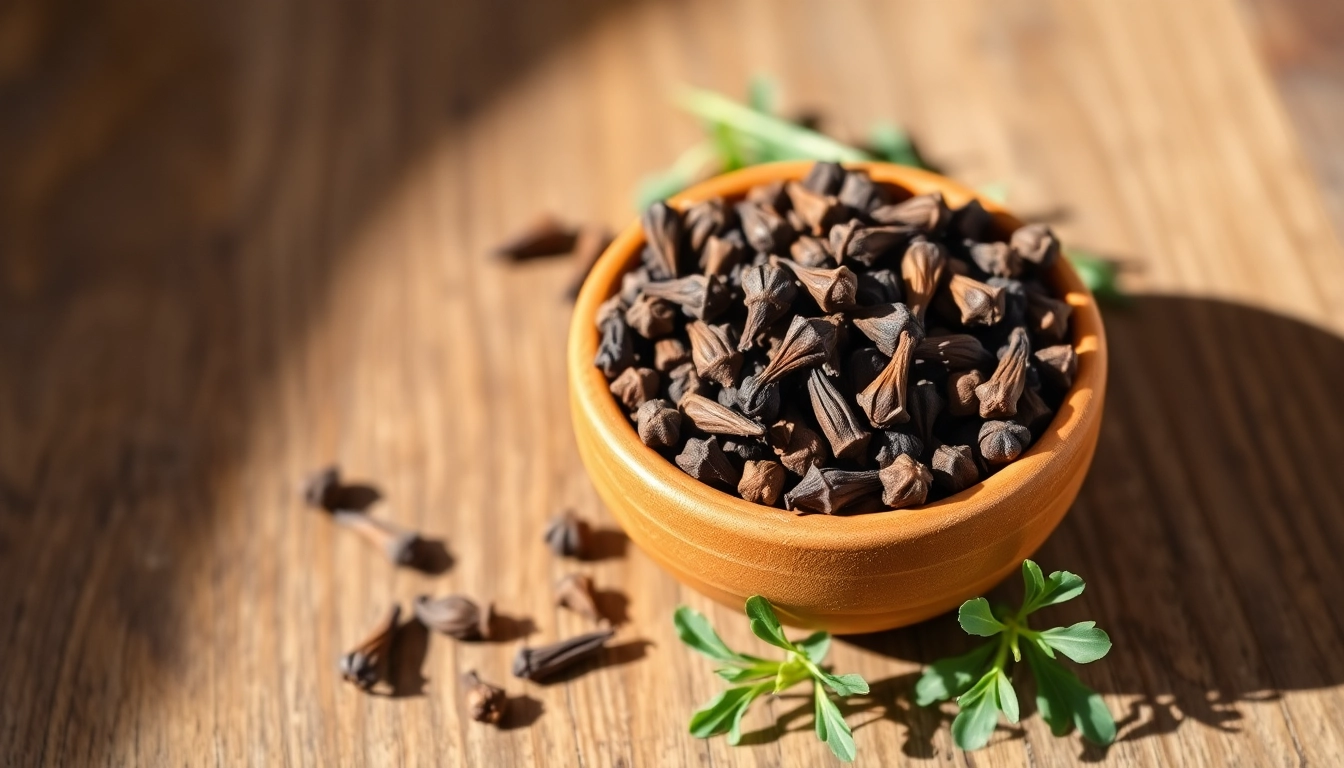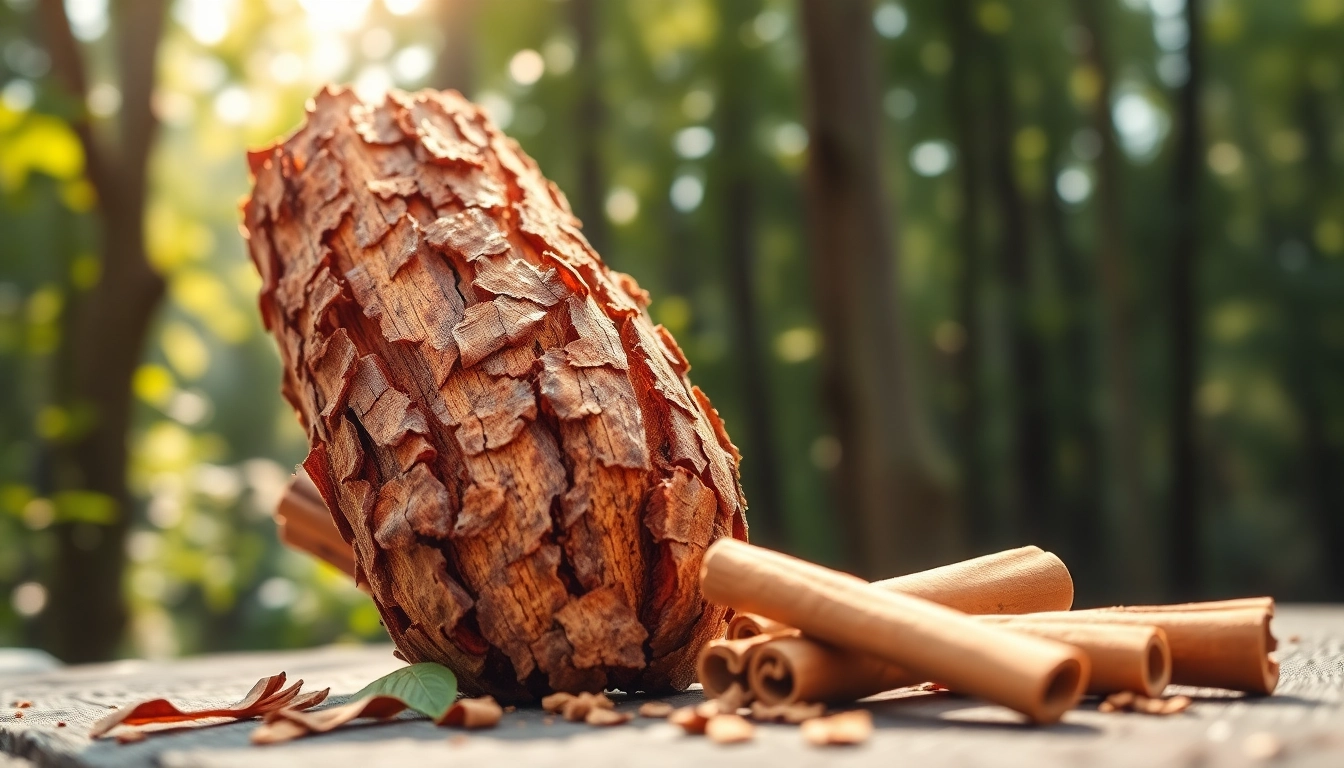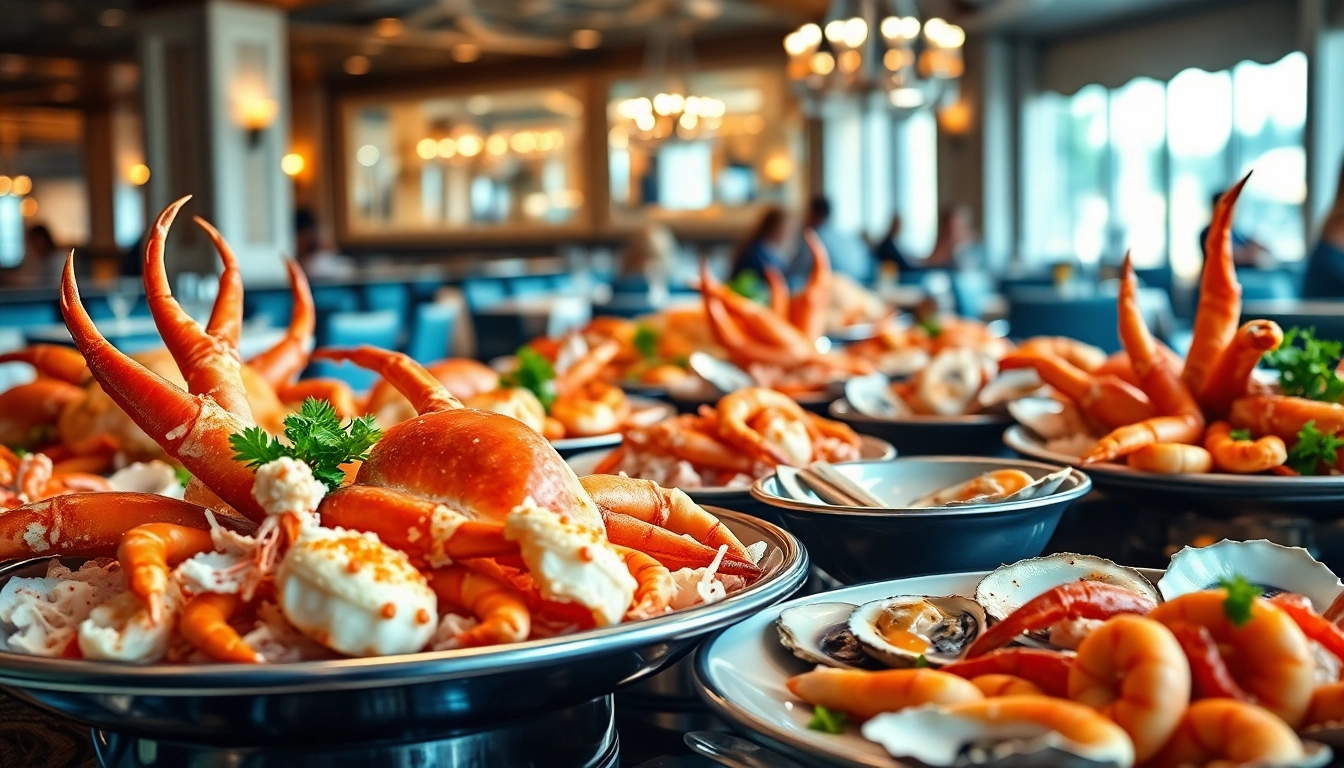The Fascinating World of Cloves
Cloves, scientifically known as Syzygium aromaticum, are the aromatic flower buds harvested from a tropical evergreen tree native to the Maluku Islands, commonly referred to as the Spice Islands of Indonesia. These small, reddish-brown buds have played a significant role in culinary traditions, medicine, and even in cosmetics for centuries. Recognized not just for their unique flavor, cloves have an impressive range of benefits that make them an essential addition to various cuisines worldwide. By exploring the multifaceted nature of cloves, we can better understand their rich history, culinary applications, health benefits, and options for shopping high-quality products. If you’re interested in learning more, you can check out these cloves to enhance your spice collection.
What Are Cloves and Their Origins?
Cloves are the dried, unopened flower buds of the Syzygium aromaticum tree. These buds are incredibly aromatic and are harvested before they bloom, then dried to preserve their flavor and aroma. The clove tree itself can grow up to 20 meters (65 feet) tall and thrives in humid tropical climates with rich soil. Historically, cloves have been a highly sought-after commodity. They were among the first spices to be traded internationally, highly valued for their flavor and preservative qualities.
In ancient history, spices were considered more precious than gold, with the demand for cloves prompting explorations and trade routes to be established. Today, cloves are primarily cultivated in countries such as Indonesia, Madagascar, Tanzania, and Sri Lanka, with Indonesia being the largest producer. The unique flavor profile and versatility of cloves have allowed them to bridge many cuisines, from Indian and Middle Eastern dishes to Western sweets and savory recipes.
Different Varieties of Cloves
While the most common variety globally is the clove from the Indonesian island of Halmahera, there are other types worth noting. These include:
- Spicy Clove/Indonesian Cloves: Known for their strong aroma and flavor, these are widely used in cooking and baking.
- Ceylon Cloves: Grown in Sri Lanka, these have a more robust and slightly sweeter flavor.
- Madagascar Cloves: Characterized by their high oil content, offering a potent flavor ideal for both culinary and medicinal use.
Understanding the different varieties helps in selecting the right type for specific culinary applications or medicinal uses, ensuring that you harness the desired flavor and benefits.
The Role of Cloves in Global Cuisine
Cloves have been a significant ingredient across continents, elevating flavors and enhancing dishes. In Indian cuisine, cloves are used in spice blends such as garam masala, served in curries and rice dishes. Middle Eastern cooks employ cloves in rice dishes and stews, bringing warmth and depth through their earthy aroma.
Western cultures often associate cloves with holiday baking, featuring prominently in recipes for spiced cookies, gingerbread, and pumpkin pies. Their unique flavor complements both sweet and savory dishes, making cloves a versatile spice that enhances many culinary creations.
Beyond their traditional roles, innovative chefs worldwide are finding new ways to integrate cloves into modern cuisine. Their inclusion in molecular gastronomy displays the ongoing evolution of this ancient spice, where cloves are used to infuse oils or create modern sauces.
Health Benefits of Cloves
Beyond the kitchen, cloves offer a plethora of health benefits that have been recognized for centuries. Rich in essential nutrients and compounds, they are not just a spice but a medicinal powerhouse.
Essential Nutrients Found in Cloves
Cloves are packed with vital nutrients, including:
- Manganese: An essential mineral that plays a role in bone health and metabolism.
- Vitamin K: Important for blood clotting and bone metabolism.
- Fiber: Promoting gut health and regularity.
- Calcium and Magnesium: Both contribute to bone health and metabolic functions.
These nutrients make cloves beneficial for maintaining overall health when incorporated into a balanced diet.
Cloves and Antioxidant Properties
One of the standout features of cloves is their high content of antioxidants, particularly eugenol. This compound demonstrates potent antioxidant properties, helping to neutralize harmful free radicals in the body. Research indicates that antioxidant-rich foods like cloves can help reduce oxidative stress, a factor linked to various chronic diseases including cardiovascular issues and arthritis.
Incorporating cloves into your diet can be a delicious strategy to enhance your antioxidant intake, potentially lowering your risk of certain diseases and promoting healthy aging.
How Cloves Promote Digestive Health
Traditional medicine has long recognized cloves for their ability to support digestive health. They can help alleviate issues such as bloating, gas, and indigestion. The oil extracted from cloves may stimulate the production of digestive enzymes, further enhancing digestion.
Additionally, eugenol exemplifies antimicrobial properties that can aid in preventing gastrointestinal disturbances caused by harmful microbes. Regularly consuming cloves may contribute to maintaining a healthy digestive system and alleviating gastrointestinal discomfort.
Using Cloves in Everyday Life
Cloves are incredibly versatile, finding their way into everyday cooking, herbal remedies, and even hygiene products. Their unique flavor and health benefits make them a valuable addition to any household.
Culinary Uses of Cloves
In cooking, the whole cloves can be added to marinades, soups, and stews to deepen flavor. Ground cloves are often included in baked goods, offering warmth to recipes for cookies and cakes. When preparing dishes like pilafs or mulled beverages, whole cloves can be added and later removed before serving.
Furthermore, incorporating cloves in spice blends allows you to experiment with various flavor profiles, merging them with spices like cinnamon, nutmeg, and star anise to create complex flavors in dishes.
Clove-Infused Drinks and Recipes
Beyond solid food, cloves are great additions to beverages. Clove tea, often enjoyed for its aromatic quality, can be made easily by steeping several whole cloves in boiling water. It’s not only a flavorful experience but can also help with relaxation and digestive comfort.
For a unique twist, try adding clove-infused syrup to cocktails or non-alcoholic beverages. This infusion can elevate drinks by providing a spicy yet sweet note, making it an appealing option for specialty drinks at gatherings.
Traditional Medicine and Natural Remedies Using Cloves
Cloves have a long-standing reputation in traditional medicine for various ailments. Clove oil is often used topically for its anesthetic properties to relieve toothaches and muscle pain. It can also serve as a natural remedy for respiratory issues, including colds and allergies, by inhaling its aromatic properties.
Creating an infusion with cloves and using it in steam inhalation can help ease congestion and respiratory discomfort. Additionally, drinking clove water is realized for its potential benefits in supporting liver function and improving digestion, particularly when consumed before bedtime.
Shopping for Quality Cloves
Finding high-quality cloves is crucial to ensure you maximize the flavor and health benefits. With various options available in the market, knowing what to look for can greatly enhance your culinary experience and wellbeing.
What to Look for When Buying Cloves
When purchasing cloves, consider the following:
- Freshness: Look for whole cloves that are aromatic and have a vibrant color. Older cloves will lose their potency.
- Source: Opt for organic cloves when possible, as they are likely to be fresher and free from preservatives and pesticides.
- Packaging: Ensure that cloves are stored in airtight containers, protecting them from moisture and air, which can diminish their quality.
Researching the brand and studying reviews can provide insight into quality assurance as well.
Where to Find the Best Clove Products
Cloves are widely available in grocery stores, health food outlets, and online retailers. While local markets may carry fresh products, online shopping can provide access to premium varieties that might not be available in your area.
When purchasing online, sites dedicated to spices or organic products often have a better selection of high-quality cloves. Checking user reviews and ratings helps ensure that you’re sourcing the best products.
Understanding Clove Quality Ratings
Clove quality is often rated based on several factors, including size, aroma, and oil content. The premium grades, such as “Noble” cloves, are typically larger and have more intense flavor profiles. Directly comparing prices and qualities can help you make more informed decisions about your purchases.
Investing in high-quality cloves will yield superior culinary results and ensure that you reap the health benefits associated with this remarkable spice.
Conclusion: Embracing Cloves in Your Lifestyle
Incorporating cloves into your lifestyle can lead to a multitude of culinary delights and health benefits. From their ancient origins to their modern applications, cloves represent a versatile spice that brings flavor and wellness into our everyday lives.
Integrating Cloves into Daily Habits
Start small by incorporating them into your daily cooking routines. Whether you’re adding them to a morning smoothie, brewing a flavorful tea, or spicing up savory dishes, you can easily integrate the use of cloves into various meals. Experimenting with cloves can inspire culinary creativity and enhance your health in delightful ways.
The Future of Cloves in Modern Cooking
As consumers increasingly lean towards natural and organic products, the significance of cloves in modern cuisine will continue to expand. Chefs and home cooks alike are utilizing spices to create healthful and flavorful options, making cloves a staple in kitchens globally.
Sharing Knowledge About Cloves with Others
Sharing your discoveries about cloves, whether through cooking classes, social media, or simply amongst friends and family, can expand awareness of this versatile spice. Education around its uses, benefits, and history not only enriches culinary experiences but allows you to become a part of the wider community encouraging healthier and more flavorful eating.



